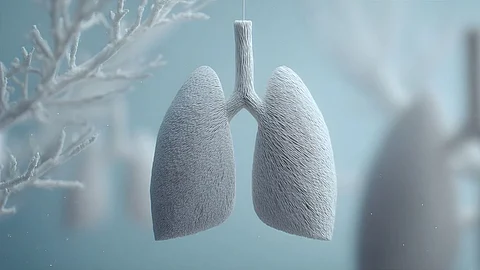

THURSDAY, Aug. 21, 2025 (HealthDay News) -- In adults with autoimmune pulmonary alveolar proteinosis (aPAP), once-daily inhaled molgramostim, a recombinant human granulocyte-macrophage colony-stimulating factor, leads to a greater increase in pulmonary gas transfer than placebo, according to a study published in the Aug. 21/28 issue of the New England Journal of Medicine.
Bruce C. Trapnell, M.D., from Cincinnati Children's Hospital Medical Center, and colleagues conducted a phase 3, double-blind trial involving adults with aPAP who were randomly assigned to receive molgramostim at a dose of 300 μg or placebo once daily for 48 weeks (81 and 83 individuals, respectively).
The researchers found that from baseline to week 24, the least-squares mean change in the diffusing capacity of the lungs for carbon monoxide (DLco) was 9.8 and 3.8 percentage points with molgramostim and placebo, respectively. From baseline to week 48, the least-squares mean change in DLco was 11.6 and 4.7 percentage points with molgramostim and placebo, respectively. The least-squares mean change in the St. George's Respiratory Questionnaire (SGRQ) total score was −11.5 and −4.9 points, respectively, at week 24. There was no significant difference noted between the groups in the SGRQ activity score at 24 weeks. The two groups had a similar percentage of patients with at least one adverse event and with at least one serious adverse event.
"Inhaled molgramostim administered once daily improved pulmonary gas transfer (as measured by DLco) at week 24 in patients with aPAP, and the observed improvement was maintained to the end of the double-blind intervention period at week 48," the authors write.
The study was funded by Savara, which is developing molgramostim.